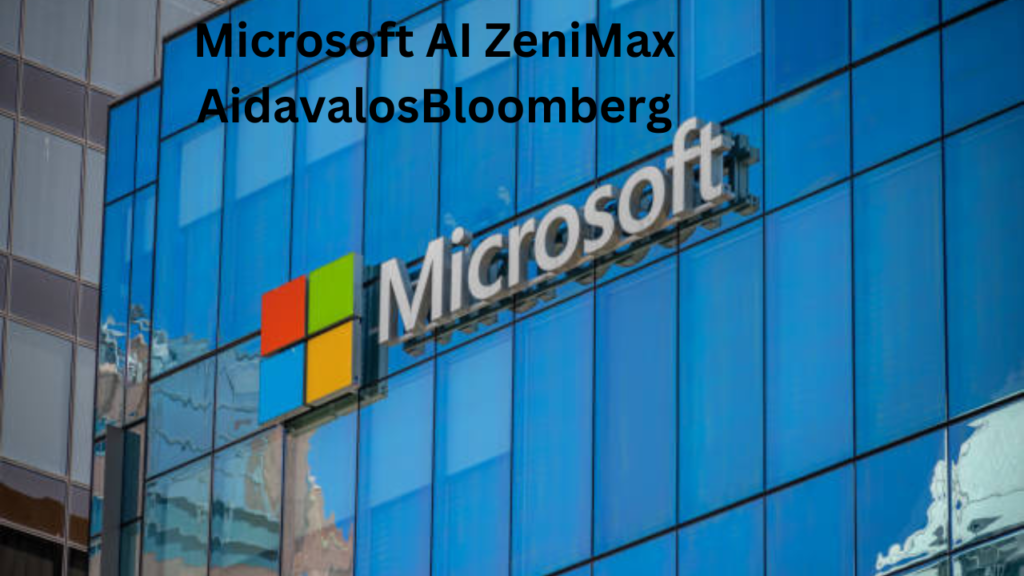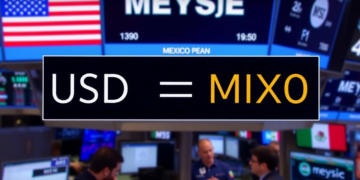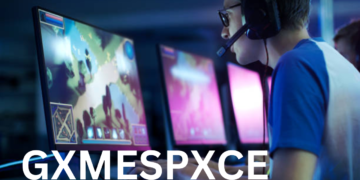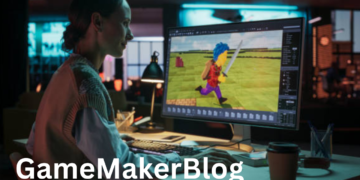The intersection of artificial intelligence (AI) and gaming has long been a hot topic among industry enthusiasts. When Microsoft acquired ZeniMax Media, the parent company of Bethesda Softworks, in a monumental $7.5 billion deal, it set the stage for groundbreaking advancements. The acquisition bolstered Microsoft’s gaming division and sparked a new wave of speculation about how AI could reshape gaming experiences. This article explores the potential impact of Microsoft AI ZeniMax AidavalosBloomberg and how it could revolutionize gaming.
A New Era for Microsoft’s Gaming Strategy
In 2020, Microsoft made headlines with its acquisition of ZeniMax Media, giving the tech giant control of some of the most iconic game franchises, including The Elder Scrolls, Fallout, Doom, and Dishonored. This move was seen as a strategic effort to solidify Xbox’s position in the gaming market, particularly in the face of fierce competition from Sony and PlayStation. With ZeniMax’s popular titles now at their disposal, Microsoft opened the door to a future filled with exclusive games, more extensive game libraries, and a stronger foothold in the gaming industry.
As part of this acquisition, Microsoft AI ZeniMax AidavalosBloomberg hints at how AI technologies could be integrated into these newly acquired game properties. The acquisition impacts the gaming ecosystem and points to the potential for AI-driven innovation within Microsoft’s gaming division. But what does this mean for the industry?

The Impact of AI on Gaming
Artificial intelligence has long been part of gaming, but its potential is far from fully realized. AI is poised to take gaming to the next level, from dynamic NPCs to procedurally generated content. Microsoft’s investment in AI could allow it to incorporate these advancements into beloved game franchises such as Elder Scrolls and Fallout, offering players a more immersive and personalized experience.
AI-Powered Game Design
One of the most exciting prospects for Microsoft AI ZeniMax AidavalosBloomberg is the possibility of AI-driven game design. AI could play a pivotal role in streamlining the development process, offering insights into game mechanics, detecting gameplay flaws, and suggesting new gameplay features. This would speed up development and lead to more polished and optimized game titles.
For instance, AI could analyze player data to suggest improvements in level design or balance gameplay to enhance the user experience. Developers could use AI tools to create a game that adapts to individual player preferences and playstyles, improving engagement and satisfaction.
Personalized Gaming Experiences
Personalization is a key trend in the gaming industry, and AI has the potential to take this to unprecedented heights. By leveraging machine learning algorithms, Microsoft could create custom-tailored gaming experiences for each player. AI could analyze player behavior, preferences, and in-game decisions to modify the game world in real time, adjusting challenges, NPC interactions, and storyline elements to create a more personalized experience.
This could mean that every game playthrough, like The Elder Scrolls or Fallout, would be uniquely tailored to the individual, creating more replay value and increasing player retention. AI-driven personalization could also extend to multiplayer modes, where players could be matched with others based on their skill level and playstyle.
Enhanced AI for NPCs
Non-player characters (NPCs) have always been a key component of video games, but their behavior often lacks the complexity of human interactions. Microsoft AI ZeniMax AidavalosBloomberg could change this by bringing more advanced AI to the world of NPCs. By leveraging deep learning models, Microsoft could create more lifelike and intelligent NPCs that react to player actions in more nuanced ways.
Imagine an NPC in Fallout who remembers past interactions, holds grudges or offers unique quests based on a player’s choices. Such AI-driven NPCs would significantly enhance the immersion of open-world games, providing players with a more prosperous, dynamic game world that feels alive.
Procedural Content Generation
Procedural content generation (PCG) is an area where AI can truly shine, creating endless possibilities for game worlds and stories. Using AI, Microsoft could generate entire game levels, characters, and storylines on the fly, providing players with an ever-evolving experience. This would increase replayability and introduce a sense of unpredictability and discovery in games like The Elder Scrolls and Doom.
By utilizing AI algorithms, the game world could be altered dynamically, creating new environments, quests, and challenges that players have never seen before. Such an approach could radically transform the games played and experienced, offering virtually infinite content.
How AI Enhances the Player’s Role
As AI evolves, so too will its impact on the player’s role within a game. AI could learn from a player’s actions, enabling a more interactive and responsive game environment. For example, in Doom, AI could create more intelligent enemies that learn from the player’s strategies, offering a more challenging experience each time the game is played. This adaptive AI would push players to evolve their gameplay techniques and strategy continually, making each session feel fresh and exciting.
AI could balance teams in multiplayer settings, creating a fair and competitive environment. Whether it’s matching players based on skill level or adjusting in-game dynamics to keep the experience engaging, AI would enhance the multiplayer experience for everyone involved.
The Future of Microsoft AI in Gaming
The potential for Microsoft AI ZeniMax AidavalosBloomberg to reshape the gaming industry is enormous. As Microsoft continues to explore AI’s possibilities, gamers can look forward to a future where AI-driven personalization, more intelligent NPCs, and endless content generation become the norm. While much remains to be seen about the full scope of Microsoft’s AI initiatives in gaming, the company’s ongoing advancements in this field suggest a future where AI is an integral part of the gaming experience.
For now, we can only speculate on the impact that the Microsoft acquisition of ZeniMax and its AI ambitions will have on the future of gaming. However, one thing is clear: AI is set to become a driving force behind the next generation of gaming, offering players more immersive, dynamic, and personalized experiences than ever before.

Also Read: Speaker Review Miracoup: The BRAVEN Mira Bluetooth Speaker
Climax
The marriage of AI and gaming is a thrilling prospect, and Microsoft AI ZeniMax AidavalosBloomberg exemplifies the vast potential that lies ahead. With Microsoft’s extensive resources and recent acquisition of ZeniMax Media, the gaming industry is on the cusp of a new era. AI-driven enhancements in gameplay, NPC behavior, procedural content generation, and personalized experiences are only the beginning. As Microsoft continues to push the boundaries of AI in gaming, the future looks bright for gamers everywhere.






































Comments 1